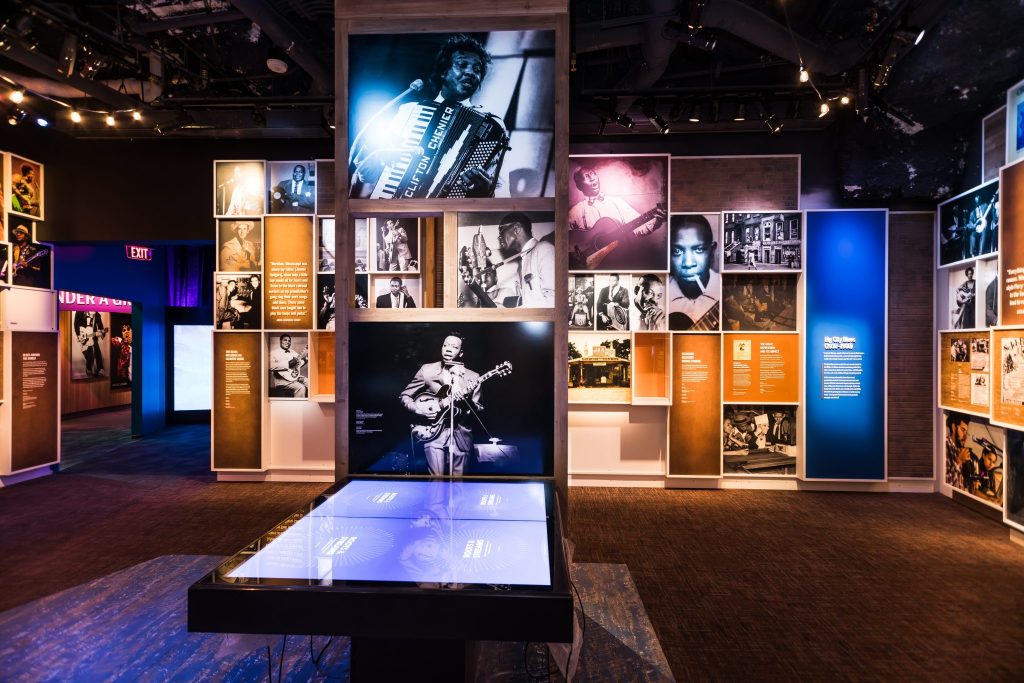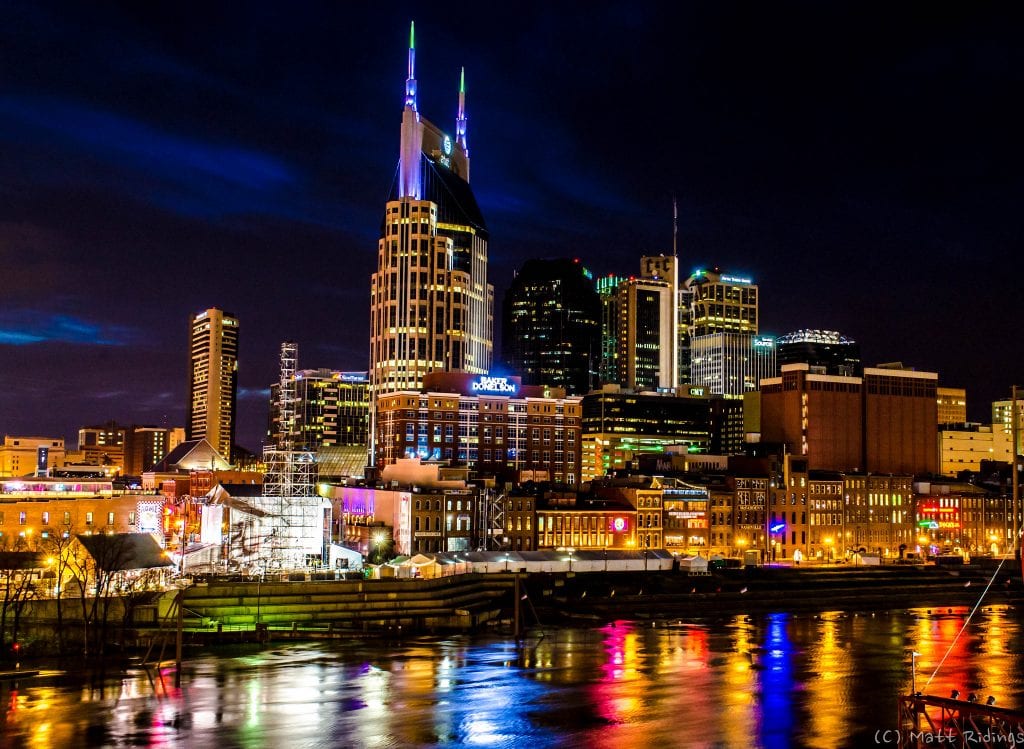Nashville's $450 Million Downtown Investment Offers Renewed Tourism Hope

Photo Credit: Nashville's downtown makeover and high vaccination rate signal more recovery ahead for Music City. Courtesy of Nashville Convention & Visitors Corp / 353 Media Group
Skift Take
Innovating amid budget slashes, natural disasters, plus a pandemic, takes vision. With backyard tourism now on a new pedestal, plus a high vaccination rate, Nashville's tourism execs are beginning to see their efforts bear fruit after having had some of the best tourism numbers in the country pre-pandemic.
Tornadoes, a pandemic, a George Floyd rally that turned violent, a bombing, and this week, floods. It’s enough to send any major city’s visitor economy crumbling, not to recoup in years.
But Nashville, a destination with one of the highest demands for hotel rooms in the U.S. pre-Covid, remains optimistic about the future of its tourism industry. Music City has begun experiencing a rebound this month. There's the city's high vaccine uptake — expected to reach 40 percent by the end of April, bringing it closer to herd immunity —plus Covid fatigued Americans on spring break.
But there's also more behind Nashville’s promise of recovery: it's the city’s biggest downtown makeover in years. The $450 million Broadway and Fifth, a 200,000 square feet retail, food and entertainment multi-use complex was completed and opened this month, along with the National Museum on African American Music. Hotel projects are also in the pipeline, including the W Hotel, Hyatt Centric, and Embassy Suites and 1 Hotel.
This “Upper Broadway” transformation is what the Nashville Convention and Visitors Corp is betting on to draw new and diverse visitors to Nashville, a city of nearly 700,000.
“Over the 12-month Covid year, we opened over 80 bars and restaurants and 2,500 more hotel rooms and still have another 2,500 under construction so we haven't slowed down,” said Butch Spyridon, CEO of the Nashville Convention and Visitors Corp (NCVC). “Our whole marketing campaign is based on ‘while you've been away, we've been creating, so we got better.”
STR’s latest data for the week ending March 20, 2021, showed that the Saturday occupancy level in Nashville was at 77.9 percent versus 47.1 percent on Wednesday.
“If you look downtown, on Broadway, it's just humming on weekends,” said Jan Freitag, national director of hospitality market analytics at the CoStar Group, noting that Nashville mirrors what STR is seeing across the country, which is leisure in the recovery lead over corporate travel.
Nashville tourism's CEO Spyridon said that starting in March, Nashville has seen increased demand every weekend, week over week. "So we're doing pretty well, but that's three days a week and we’re still way down the other four days, and that’s tied to primarily conventions and then business travel,” Spyridon said, adding that Nashville is aiming to bring conventions back in June.
Tourism Tax Revenue Will See Big Jump in 2021
Prior to Covid, Nashville received 16.1 million visitors in 2019, generating $7.5 billion in direct visitor spending, $1.92 billion in state and local tax revenue and 195,000 tourism-related jobs. It was the culmination of a 10-year, record-breaking streak that even Spyridon described to The Tennessean as “defying logic” and unsustainable.
Since Covid, with its fiscal year running from July 1, the NCVC’s hotel bed tax revenues took a dramatic 70 percent hit. What was normally a $30 to $32 million budget was reduced to $10 million, parts of which came from private dollars and additional support from the state. Spyridon said that furloughing eight staff while keeping the core team in place with pay cuts allowed his office to navigate the budget cut in pretty good shape.
Help came in the form of $4.5 million in marketing dollars last fall from the state, which itself received the largest tourism grant amount in the country to the tune of $25 million, distributed in majority among its 95 destination marketing organizations.
"[It] meant Nashville with more than 30 percent of those total [tourism] tax revenues would be entitled to a larger share," said Mark Ezell, commissioner of the Tennessee Department of Tourist Development.
The Nashville CVC chose to put its funds towards creative efforts rather than in advertising, given that travel was restricted and Covid surges were anticipated over the 2020 holiday season.
Another $2 million this month comes from an approved Economic Development Administration grant with a 60/40 match. “When you have to match 40 percent and your budget’s been cut by 70 percent, the math doesn't necessary line up like we'd like it to, but we'll figure that out too,” Spyridon said.
For fiscal year starting in July 2021, NCVC is optimistic it will receive help from the city and the state of Tennessee through the CARES Act.
“Once we have a chance to look at March and see what the growth was, we'll be able to project,” Spyridon said. “But I would say instead of $10 million, we're probably looking in the $15 to 20 million in terms of tax revenue that would normally fund us. So I see a pretty big jump, but not the jump back to 2019 numbers.”
Like most destination management organizations since Covid, the NCVC has considered alternative streams of revenue this year beyond bed taxes. These include pushing on retail merchandise sales — asking members to carry the bureau forward this year by renewing their memberships — and turning the city's July 4 and New Year’s Eve celebrations into revenue generating events.
Creating A Modernized, Inclusive Nashville
As the rebound continues, Nashville plans to keep pushing its image as a city that embraces change and diversity.
“By making the music message more diverse, we feel like we're talking to a more diverse audience,” Spyridon said, noting the significance of having the only African American Museum in the world dedicated to music. Spyridon, who sits on the museum’s board of directors, said it was a 20-year endeavor. “It is using music to tell the diversity of Nashville’s story.”
Nashville’s popular drive markets include Atlanta, Louisville and Memphis, but the city’s 180-degree facelift — namely Fifth & Broadway, where honky tonks end — plus Covid’s boost of domestic tourism nationwide is bringing in a new consumer.
“What we really didn't expect and has started the national bounce back: New York popped up as an important market for us,” Spyridon said. “Once you get past the optics of bachelorettes on lower Broadway, you're seeing a very diverse and much more growing upscale audience that has caught on to the dining, culinary scene here.”
It’s this reimagined Nashville — miraculously eclipsing the December 2020 bombing scene on Second Street — that the NCVC and hospitality brands are betting on to bring travelers back to Music City.
"When you study the data and you study the demand cycles of what's happening for places like Tennessee and Nashville in particular ... it's because it's a great place to live, but it also has these tourism assets that improve quality of life — things that maybe 10 to 15 years ago wouldn't have had Nashville in the conversation with some of these other larger cities," Commissioner Ezell said, noting that the small town feel but growth in diversity is now pulling in newcomers.
With high corporate relocation and convention demand, plus a leisure city that's easy to reach by car and by air — Nashville's airport facelift includes a new concourse for Southwest Airlines flights — and Great Smoky Mountains National Park seeing a record 12 million visitors last year, there's more light ahead at the end of the tunnel.


